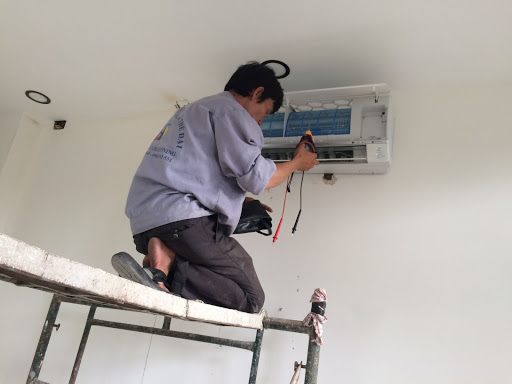Minimum Knowledge in Air Conditioning and Refrigeration Engineering (Diploma)
On December 28, 2018, the Ministry of Labor, Invalids and Social Affairs (MOLISA) issued Circular 48/2018/TT-BLDTBXH regulating the minimum knowledge volume and competency requirements that learners must achieve after graduating from intermediate and college levels in the fields of electrical engineering, electronics, and telecommunications.

Minimum knowledge in refrigeration and air conditioning engineering (College) - Illustrative image
Pursuant to the Regulation on the minimum volume of knowledge and competency requirements that learners must achieve upon graduation with intermediate and college-level diplomas in refrigeration and air conditioning engineering, issued together with Circular 48/2018/TT-BLDTBXH, the minimum knowledge that learners must achieve upon graduating in refrigeration and air conditioning engineering at the college level is prescribed as follows:
- State the regulations and standards for technical drawings in the profession;
- State the basic contents of labor safety standards, industrial hygiene, and fire prevention in the execution of tasks in the profession;
- State the methods and processes for implementing green practices in the execution of tasks in the profession;
- State the methods and processes for installing and operating industrial, commercial, and residential refrigeration systems ensuring safety and technical requirements;
- Describe various types of equipment, tools, and analyze the functions of each equipment and tool in refrigeration and air conditioning engineering;
- State the methods and processes for installing and operating local and central air conditioning systems ensuring safety and technical requirements;
- State the methods and processes for installing and operating Chiller, VRV/VRF air conditioning systems;
- State the methods and processes for installing and operating automotive air conditioning systems;
- State the methods and processes for maintaining and servicing refrigeration systems ensuring safety and technical requirements;
- Analyze mechanical, electrical, and refrigeration faults in refrigeration and air conditioning systems;
- Analyze common electronic control faults in refrigeration systems;
- Determine methods to update technical documents related to the profession;
- State the working principles and usage of the main tools and equipment used in the profession;
- State the methods for calculating refrigeration load, selecting, and preliminarily designing electrical-refrigeration systems of refrigeration and air conditioning equipment with small refrigeration capacity;
- State the regulations for work acceptance and handover;
- State the basic knowledge of politics, culture, society, law, national defense and security, and physical education as prescribed.
Details of the document in Circular 48/2018/TT-BLDTBXH, effective from February 10, 2019.
Le Vy
- Evaluation contents of programs and public investment projects in Vietnam from January 1, 2025
- Implementation and disbursement period of annual public investment plan funds under the Law on Public Investment 2024 in Vietnam
- Procedures for issuing Certificates for driving practice instructors in Vietnam from January 1, 2025
- Technical conditions of infrastructure of driver training institutions in Vietnam from January 1, 2025
- Procedures for issuing Certificate of food safety eligibility for agricultural, forestry, and fishery production and business facilities in Vietnam
- Strengthening management, enhancing efficiency in utilization, and handling of housing and land at state-owned enterprises in Vietnam
-

- Procedures for issuing Certificates for driving ...
- 08:31, 27/12/2024
-

- Technical conditions of infrastructure of driver ...
- 08:00, 27/12/2024
-

- Procedures for issuing Certificate of food safety ...
- 19:00, 26/12/2024
-

- Strengthening management, enhancing efficiency ...
- 18:40, 26/12/2024
-

- Procedures for registration and declaration of ...
- 18:07, 26/12/2024
 Article table of contents
Article table of contents
